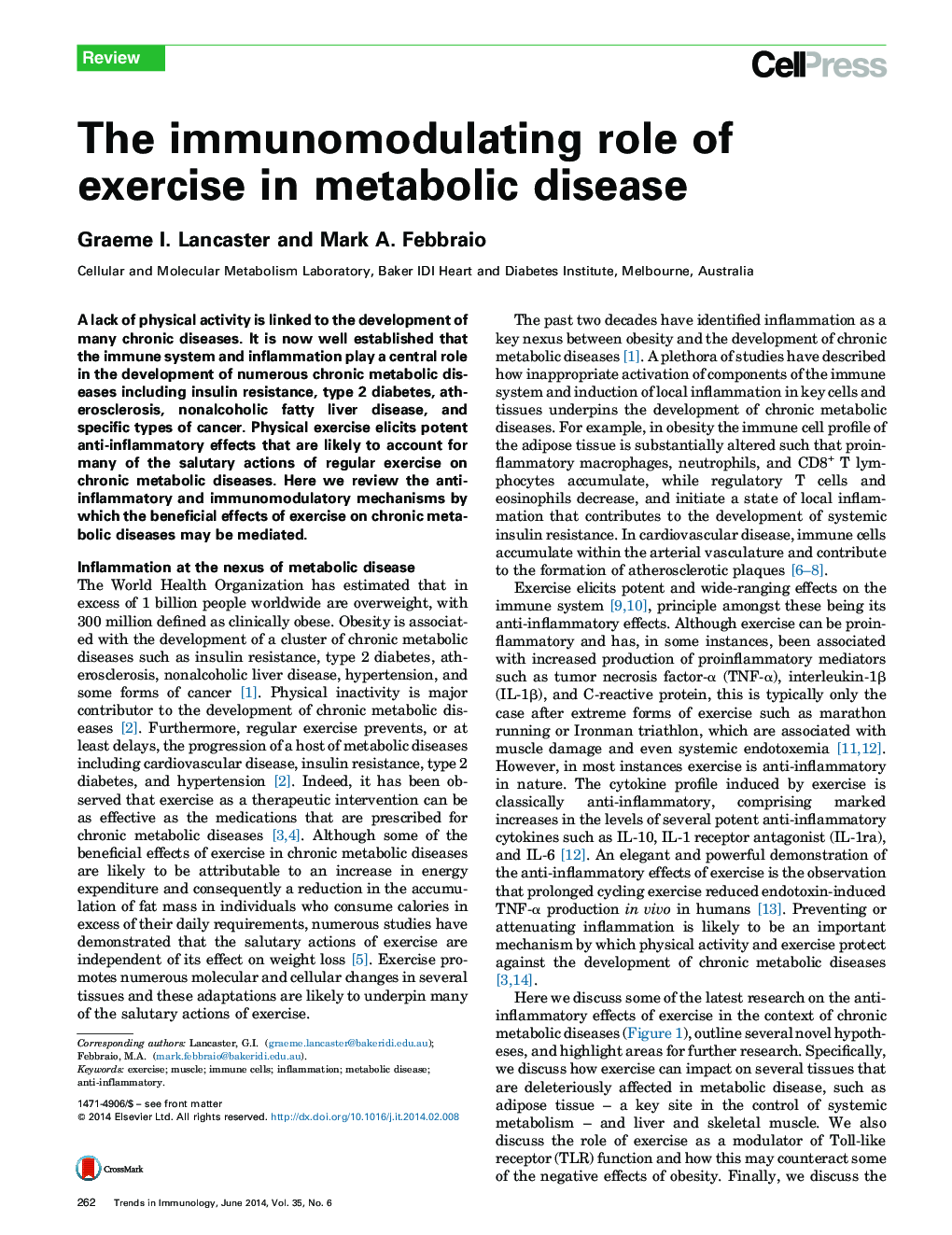| Article ID | Journal | Published Year | Pages | File Type |
|---|---|---|---|---|
| 4359964 | Trends in Immunology | 2014 | 8 Pages |
•Lipid accumulation is linked to inflammation in a setting of nutrient overload.•Exercise training reduces levels of proinflammatory cytokines in adipose tissue.•Exercise may reduce inflammation by decreasing lipid accretion in liver and muscle.•Anti-inflammatory effects may be mediated via inhibition of TLR and IL-1 signaling.
A lack of physical activity is linked to the development of many chronic diseases. It is now well established that the immune system and inflammation play a central role in the development of numerous chronic metabolic diseases including insulin resistance, type 2 diabetes, atherosclerosis, nonalcoholic fatty liver disease, and specific types of cancer. Physical exercise elicits potent anti-inflammatory effects that are likely to account for many of the salutary actions of regular exercise on chronic metabolic diseases. Here we review the anti-inflammatory and immunomodulatory mechanisms by which the beneficial effects of exercise on chronic metabolic diseases may be mediated.
